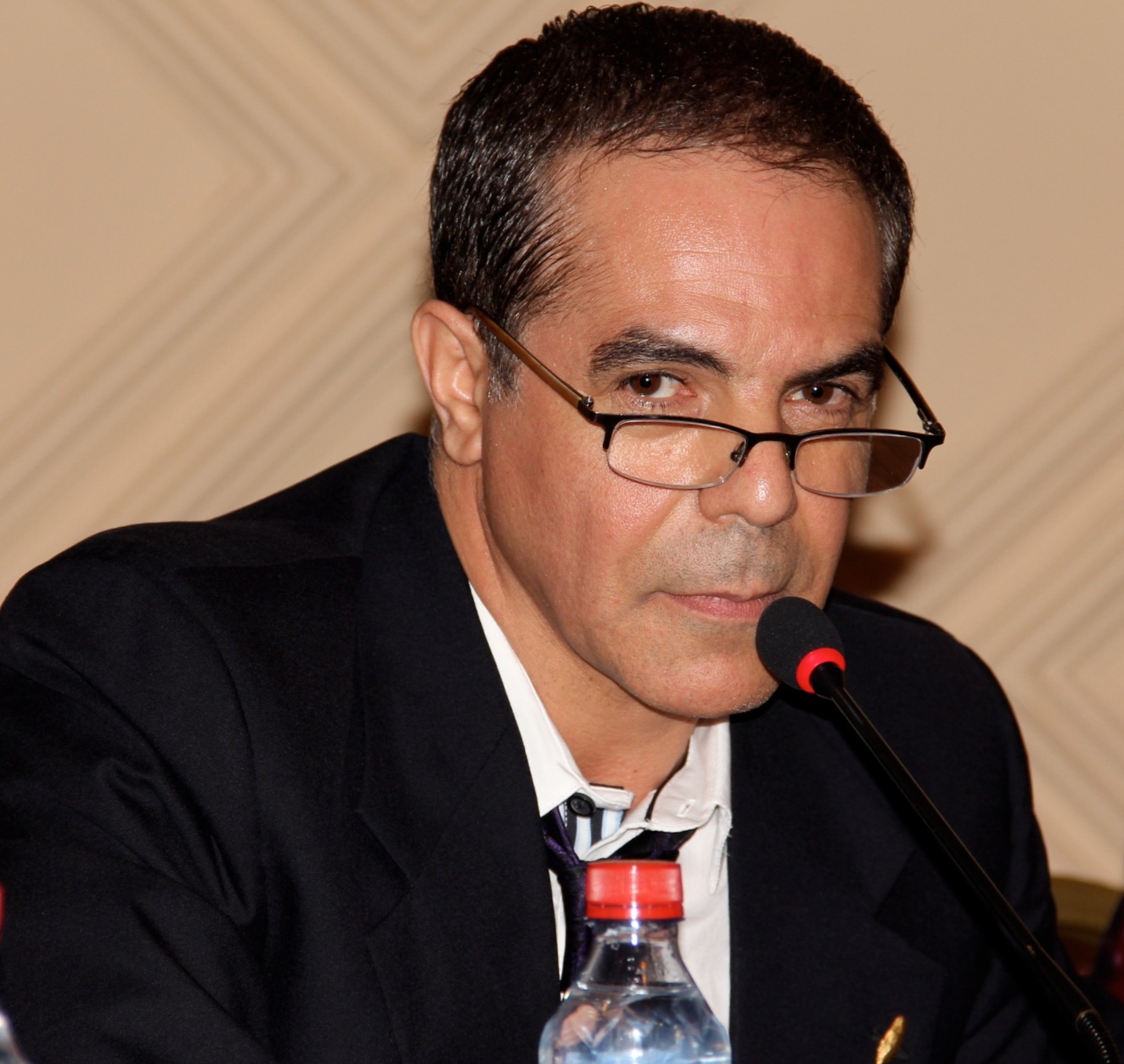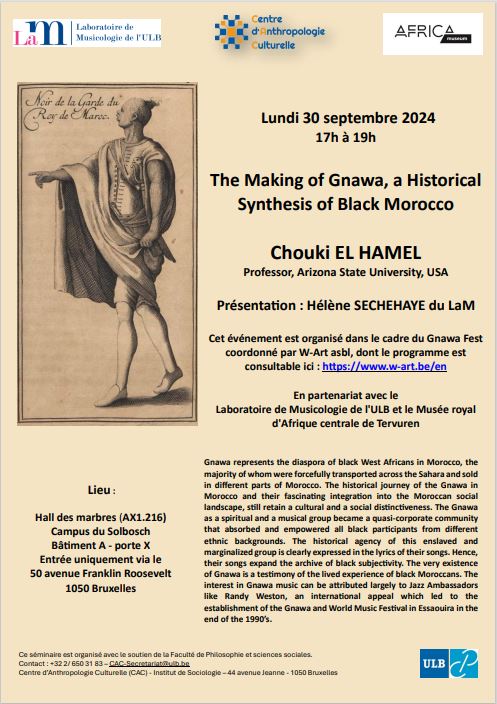Dans la même rubrique
- CAC
- FR
- Actualités
- Evénements à venir
-
Partager cette page
« The Making of Gnawa, a Historical Synthesis of Black Morocco », Chouki el Hamel
Chouki el Hamel, Professor, Arizona State University, USAPrésentation : Hélène Sechehaye du LaMCet événement est organisé dans le cadre du Gnawa Fest coordonné par W-Art asbl, dont le programme est consultable ici : https://www.w-art.be/en En partenariat avec le Centre d'Anthropologie Culturelle, le Laboratoire de Musicologie de l'ULB et le Musée Royal d'Afrique Centrale de Tervuren et avec le soutien de la Faculté de Philosophie et Sciences Sociales de l'ULB. Summary : Résumé : Chouki El Hamel is director of the Center for Maghrib Studies and a professor of history in the School of Historical, Philosophical and Religious Studies at Arizona State University, specializing in West and Northwest Africa who is particularly interested in the subaltern relationship of servile and marginalized communities to Islamic ruling institutions. His research into these relationships revolves around issues of slavery, race/ethnicity/color, gender, power/class, and restorative justice. He published two books, among which Black Morocco: A History of Slavery, Race, and Islam (Cambridge University Press, 2013, translated into French in 2019). He recently published The Story Map: Race & Slavery, a website that provides an excellent entry to a wider public-facing debate about slavery and race in North Africa. Chouki El Hamel est directeur du Centre d'études maghrébines et professeur d'histoire à la School of Historical, Philosophical and Religious Studies de l'Arizona State University, spécialiste de l'Afrique de l'Ouest et du Nord-Ouest. ). Chercheur africaniste qui s'intéresse particulièrement à la relation subalterne des communautés serviles et marginalisées avec les institutions dirigeantes islamiques, il a suivi sa formation et ses études doctorales à l'université de la Sorbonne. Il a publié deux ouvrages, dont Black Morocco : A History of Slavery, Race, and Islam (Cambridge University Press, 2013). Ce livre a été traduit en français en 2019. Il a récemment publié The Story Map : Race & Slavery, un site web qui constitue une excellente entrée dans un débat public plus large sur l'esclavage et la race en Afrique du Nord. |
de 17h à 19h
ULB - Campus du Solbosch
Hall des marbres (AX1.216) - Bâtiment A porte X
Entrée uniquement via le 50 avenue Franklin Roosevelt - 1050 Bruxelles ( entrée 12-13 sur le plan) Plan solbosch


